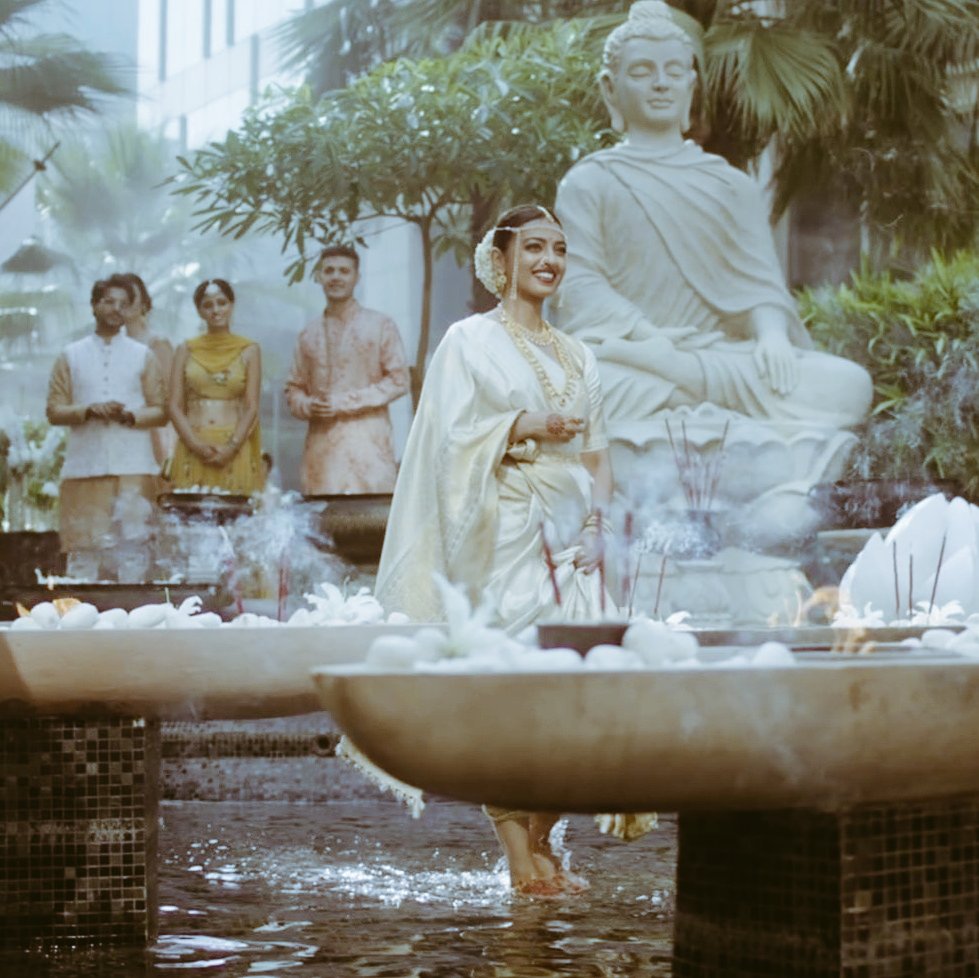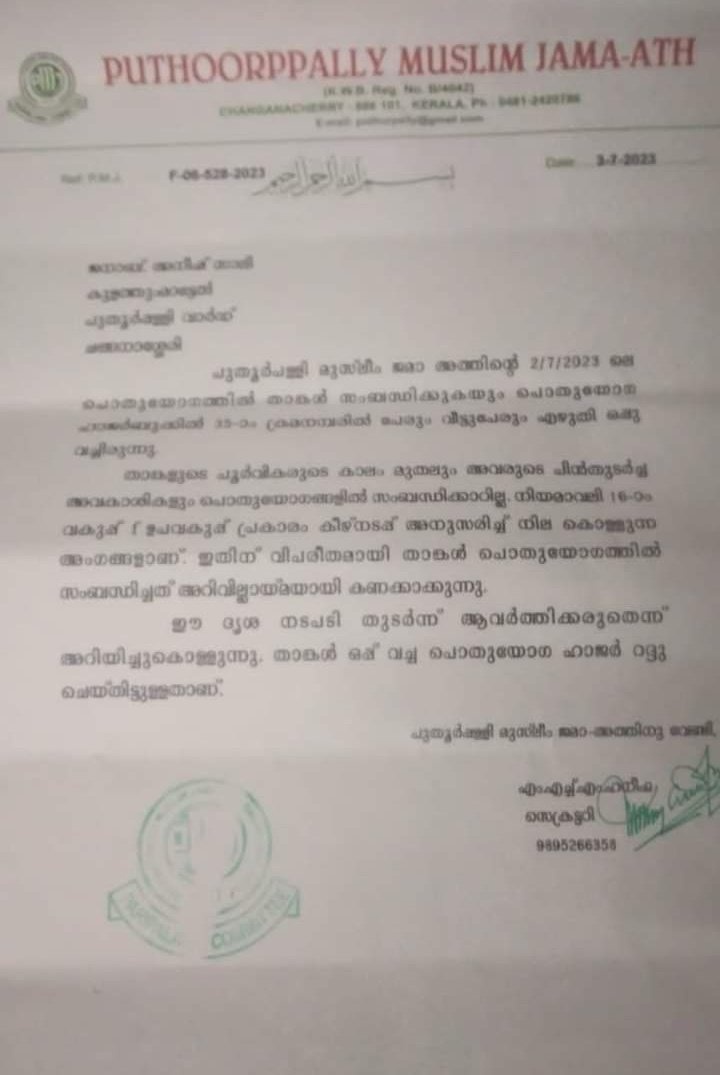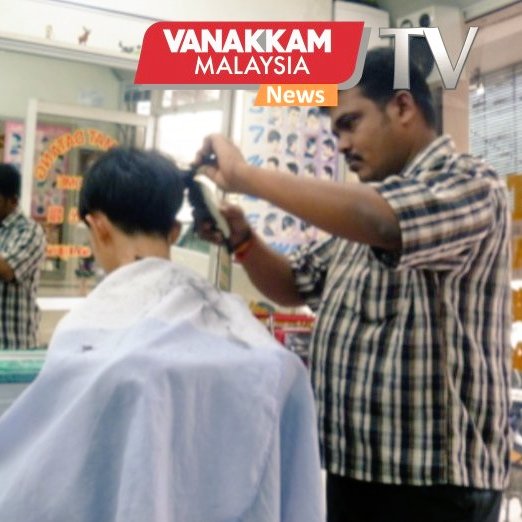The much talked about wedding scene from "Made in Heaven: Season 2" Webseries is non-Brahminical & non-Vedic AMBEDKARITE BUDDHIST WEDDING.
The short movie is part of the 5 part episode of the Webseries and is directed by an acclaimed Marathi Dalit director Neeraj Ghaywan.
The short movie is part of the 5 part episode of the Webseries and is directed by an acclaimed Marathi Dalit director Neeraj Ghaywan.

This is first time that WORLD is witnessing cinematic portrayal of an Indian Buddhist Wedding or to be precise-AMBEDKARITE BUDDHIST WEDDING.
The beautifully & aesthetically picturized wedding scene with background tune of "Buddham Sharnam Gachammi" is immensely powerful visual.
The beautifully & aesthetically picturized wedding scene with background tune of "Buddham Sharnam Gachammi" is immensely powerful visual.

Radhika Apte's character wades through pool of water, full of lotus flowers (symbol of Buddhism) to reach wedding stage. Scene is director Ghaywan's cinematic tribute to Babasaheb Ambedkar's Mahad water satyagraha, wherein Babasaheb fought for rights of Dalits to use public tank. 

Indian Ambedkrite Buddhist weddings are very simple ritual less affairs, where NONE of these things are present 👇
1. NO Vedic chants;
2. NO Brahmin priests;
3. NO fire worship;
4. NO Saptapadi (7 rounds around fire); and
5. NO need to wear "auspicious" red color Saree.
1. NO Vedic chants;
2. NO Brahmin priests;
3. NO fire worship;
4. NO Saptapadi (7 rounds around fire); and
5. NO need to wear "auspicious" red color Saree.

Ambedkrite Buddhist wedding need not be conducted by Buddhist monks. It could be officiated by anyone, who has sound knowledge of Ambedkarism & Buddhism.
Photos/statutes of Baba Sahab Ambedkar & Buddha occupy pivotal and central place in Ambedkrite Buddhist weddings.
Photos/statutes of Baba Sahab Ambedkar & Buddha occupy pivotal and central place in Ambedkrite Buddhist weddings.

Ambedkrite Buddhist wedding rituals are very short & simple:
1. Both groom & bride light candles on an alter where photos of Baba Sahab Ambedkar & Buddha are placed & seek their blessings.
2. Buddhist priest /Person officiating wedding chants few short Buddhist prayers in Pali
1. Both groom & bride light candles on an alter where photos of Baba Sahab Ambedkar & Buddha are placed & seek their blessings.
2. Buddhist priest /Person officiating wedding chants few short Buddhist prayers in Pali

3. Buddhist priest/Person officiating wedding makes bride & groom & their family repeat vows of marriage, which often varies.
Depending on local practice, such vows includes invoking grace and blessings of Buddha & Baba Sahab Ambedkar.
Depending on local practice, such vows includes invoking grace and blessings of Buddha & Baba Sahab Ambedkar.

4. GARLAND EXCHANGE is the LAST and most important and much awaited & celebrated part of Ambedkrite Buddhist wedding, where both bride and groom garland each other, while their family & friends shower them with flowers.
And Guess what ?
Marriage is complete.
And Guess what ?
Marriage is complete.

There are 3 types of Buddhist Weddings in South Asia:
1. Ambedkrite Buddhist wedding in Maharashtra & Western Uttar Pradesh;
2. Tibetan Vajrayana/Mahayana Buddhist Wedding in Ladakh, Himachal's Lahul & Spiti, Sikkim & Arunachal Pradesh;
3. Threvada Buddhist wedding in Sri Lanka.
1. Ambedkrite Buddhist wedding in Maharashtra & Western Uttar Pradesh;
2. Tibetan Vajrayana/Mahayana Buddhist Wedding in Ladakh, Himachal's Lahul & Spiti, Sikkim & Arunachal Pradesh;
3. Threvada Buddhist wedding in Sri Lanka.

Indian Ambedkarite Buddhist wedding itself has two main regional flavors:
1. Maharashtrian Mahar Buddhist Ambedkarite Wedding &
2. Jatav Buddhist Ambedkarite Wedding of Western Uttar Pradesh.
Both these weddings have additional influence of local Marathi & Western UP culture.
1. Maharashtrian Mahar Buddhist Ambedkarite Wedding &
2. Jatav Buddhist Ambedkarite Wedding of Western Uttar Pradesh.
Both these weddings have additional influence of local Marathi & Western UP culture.

Lastly,
A special thanks to movie director Neeraj Ghaywan for mainstreaming an Indian Ambedkrite Buddhist wedding in popular cinema.
A special thanks to movie director Neeraj Ghaywan for mainstreaming an Indian Ambedkrite Buddhist wedding in popular cinema.
https://twitter.com/dipam75100455/status/1689972681930915840?t=ovVAeL64Ul9VcmsaJIXkwQ&s=19
• • •
Missing some Tweet in this thread? You can try to
force a refresh

 Read on Twitter
Read on Twitter











